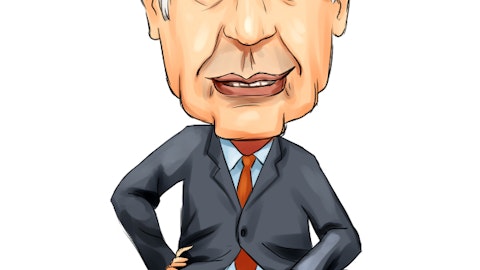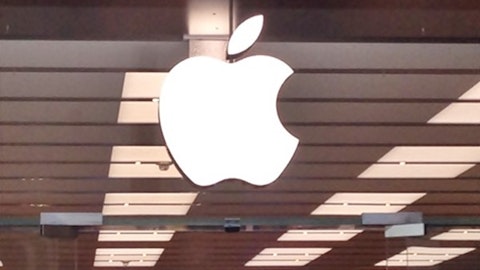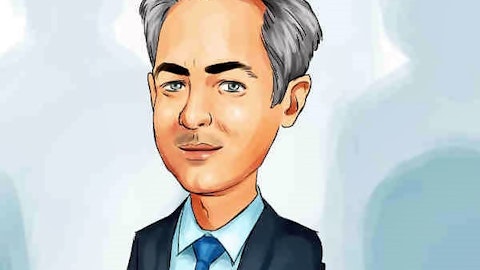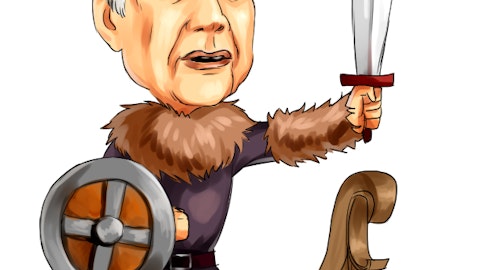Billionaire Paulson Hit by 2014 Losses; Advantage Plus Fund Declines 36% (Bloomberg)
Billionaire John Paulson posted the second-worst trading year of his career in 2014 as a wrong-way energy bet added to declines tied to a failed merger and investments in Fannie Mae and Freddie Mac. The worst performance was in the Advantage Plus fund, which plummeted 36 percent last year, two people with knowledge of the returns said.The event-driven strategy, which uses leverage to make bets on companies undergoing transformations such as spinoffs and bankruptcies, lost 3.1 percent in December, said the people, who asked not to be identified because the information is private. The 59-year-old manager also lost money in a credit pool and special situations fund. He barely broke even in a fund that bets on company mergers, a strategy that comprises about half of the firm’s assets.
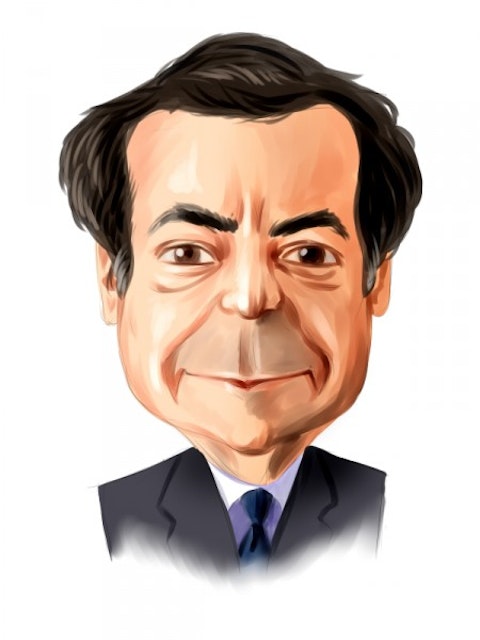
Ackman Makes Good on $10M Charity Promise (CNBC)
Bill Ackman is putting his money where his mouth is. Roughly two years after promising to donate his personal winnings from his controversial $1 billion bet against nutritional and weight-loss company Herbalife, the hedge fund titan is making good on the pledge with a $10 million donation to a scholarship charity, his foundation said. Ackman’s Pershing Square Foundation on Friday announced that TheDream.US, which helps immigrant youths pay for college, will receive the money over three years.
Hedge Fund Mason Capital Ends 2014 Down 12 Percent (Reuters)
Hedge fund Mason Capital lost 12 percent in 2014, making for one of the industry’s biggest declines, after the New York-based firm was hit by a failed merger of pharmaceuticals companies Shire and AbbVie, a person familiar with the firm said in Monday. The $9 billion hedge fund, which manages money for state pension funds and other wealthy investors, sold depressed Shire shares after the two companies called off their planned deal in October, the source said. The shares later rebounded. Mason ended October down 7 percent. In November, when many hedge funds recovered, it was nearly flat, gaining just 0.03 percent as a number of energy stocks in its portfolio were hit by falling oil prices.
D.E. Shaw Acquires 300-Megawatt Wind Farm From Apex Clean Energy (Bloomberg)
D.E. Shaw & Co., a $34 billion hedge fund, purchased a 300-megawatt wind farm from Apex Clean Energy Inc. for an undisclosed sum. The Balko wind farm in Beaver County, Oklahoma, is expected to begin producing power later this year, New York-based D.E. Shaw said today in a statement. Apex began developing the project in 2009. The Public Service Company of Oklahoma and Western Farmers Electric Cooperative have agreed to buy power from the Balko wind farm under long-term contracts. The project is using 162 1.85-megawatt General Electric Co. turbines and will produce enough electricity for about 111,000 homes.
Tudor, Kepos Hedge Funds Rise in 2014 as Paulson Drops (Bloomberg)
Pine River Capital Management’s Dan Li was up 14 percent last year through November betting on China’s ability to bring more investors into its stock market. He more than doubled that gain in December, returning 30 percent for the year as Shanghai equities surged. Li wasn’t the only hedge fund manager ending 2014 on a high. Mark Carhart’s $2 billion Kepos Capital rose 7.8 percent in the final month to finish 2014 up 22 percent and Pierre Andurand’s energy hedge fund rocketed 15 percent in December after climbing 18 percent the prior month, according to people with knowledge of the returns.
Carl Icahn: Oil Hasn’t Hit Bottom Yet (CNBC)
With the oil market weighed down by oversupply woes, activist investor Carl Icahn said that he expects crude prices to slide further in the short-term. “I do think that the oil actually will probably go lower,” Icahn said on CNBC’s “Fast Money.” I think, though, it will give great opportunities in the future.” Icahn added that he expects global consumption to go up in a few years and offer solid investments opportunities, “especially in the service areas.”
How Meredith Whitney’s American Revival Sputtered in Debut Year (Bloomberg)
It took less than a year for Meredith Whitney’s hedge fund to begin unraveling. Her American Revival Fund started investing in heartland stocks in November 2013, after the Wall Street star predicted on TV and in a book that the center of the U.S. would boom. Even as parts of the region did well, she made wrong-way bets on companies including a retailer that sells mattresses and stereos on credit in Texas. In October, she was headed for the year’s eighth monthly drop when her main backer, a fund tied to billionaire Michael Platt, asked for its money back. Her firm refused.
Hedge Funds Take Cautious Line on Stocks (The Wall Street Journal)
Wall Street analysts are recommending investors buy stocks of large U.S. companies. But some hedge funds are holding back. Prominent firms, such as the $14 billion CQS LLP and Passport Capital LLC, which manages $4 billion, have cut their exposure to stocks recently after six straight annual gains for the Dow Jones Industrial Average and three consecutive yearly wins for the S&P 500 index. Hedge funds’ use of borrowed money, or leverage, to amplify the effect of their bets dropped last week to the lowest level in more than two years, Morgan Stanley told clients in a confidential memorandum. The drop in leverage signals a dwindling conviction that markets will push ever higher. The increased caution from these investors, who charge higher fees than other funds in part because of their promise to make money in good times and bad, is at odds with Wall Street banks’ predictions of another strong year for U.S. stocks.
